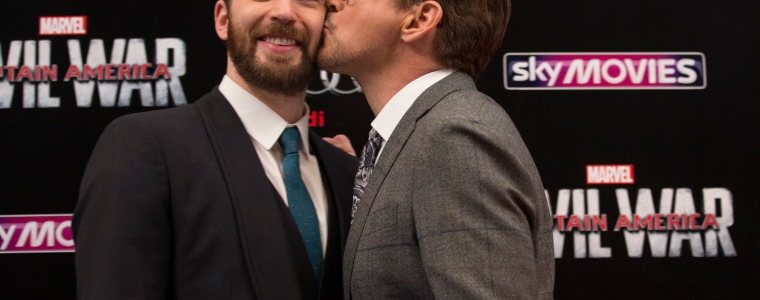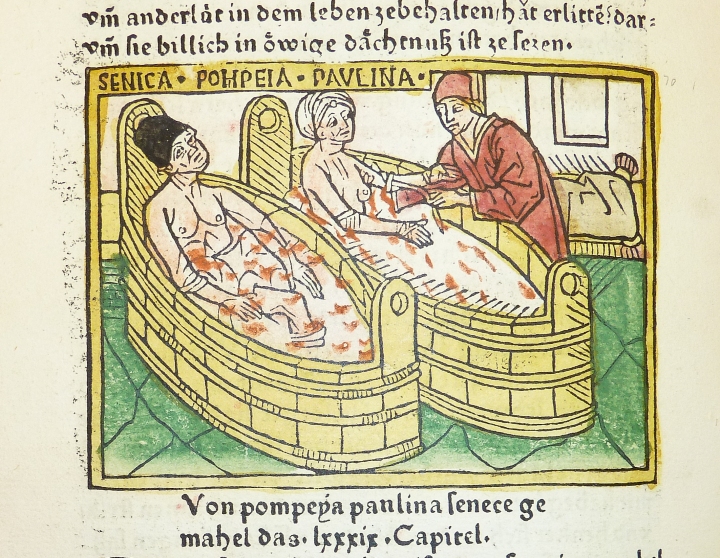Photo credit: Stingmedia for Disney
Be forewarned, this post contains spoilers on the plot of various Marvel branded movies and TV shows released to date (notably Captain America: Civil War). I have not read the comics, so this commentary relies entirely on the cinematic universe portrayed by the movie franchise. I’m not a scholar of film, media or popular culture, but I have been intrigued by some of the themes cropping up in the Marvel franchise and the way in which these themes are generally dealt with. In particular, I find some of the elements of narratives around superheroes interesting, as they reflect upon what it means to be human (or not) and what constitutes moral behaviour (or at least what separates the ‘good’ guys from the ‘bad’), especially among leaders or celebrities.
There are many interesting elements which appear in the Marvel franchise around the role of government, the implications of covert organisations and ties between wealth and politics. There are also underlying questions about the ethics of methods and outcomes; is it okay for the good guys to work in the same way as the bad if they catch the bad guys in the end? In Avengers: Age of Ultron the narrative revolves around the implications of delegating responsibility for judgement of criminal action to automated systems – the very same debates which surround the use of drones in real warfare today. In Captain America: Civil War the narrative continues with these themes and explores the difficulties of collective governance and responsibility versus the pursuit of an individual moral code.
In these narratives there is a fundamental question over the extent of law and central authority to safeguard the collective public. In the landscape of these comic book narratives, which originated in and related to satirical drawings as well as war propaganda in their earliest forms, this draws strongly on the cultural inheritance of a time where capitalism and democracy as forms of social order agonised over the threats of communism and fascism. The contemporary Marvel narratives also seem to query the consequences of relying upon single individuals, often male heroic figures, to take action or make a decision in a position of imperfect knowledge or resources.
I first became interested in the role of these heroes in the Marvel franchise in their first contemporary cinematic movie Iron Man. This is a tale of a successful scion of industry who has profited from unethical and unscrupulous business practices and who lives an unscrupulous and immoral playboy lifestyle yet, after experiencing a life changing event and developing empathy for the suffering of others, changes his ways. Throughout the movie, Tony Stark (aka Iron Man) is questioned and criticised for his drastic actions as putting his company’s financial stability at risk.
According to Kantian views on ethics, those matters of action which constitute questions of right and wrong but fall outside of matters of compliance with the law, moral action should be decided only based upon maxims that are categorically imperative. This contrasts hypothetical imperatives to act (e.g. I wish to acquire riches, I ought to sell more products) where the action relies upon the pursuit of desires for what might be, with categorical imperatives for action (e.g. I know a product to be dangerous, I ought to stop manufacture of the product). The second action fulfils Kant’s notion of the Categorical Imperative, or ‘fair play’; a moral duty is only one that would be right for any and all persons in any circumstance. This is sometimes referred to as the test of universalisability. Kantian ethics is therefore a rule or duty-based system of ethics (compared to other systems of ethics such as consequentialism that focus on outcomes).
This seems rather counter-intuitive, especially to those who point out that all business relies upon competition, to produce the best product, to command the highest price, to attract the best talent. The marketplace rewards outcomes, not intentions. Yet Kant makes this very point, and highlights that our intuitions are often unethical, that it is education, discipline and civilisation that teach us when to act on more than intuition, to act instead upon reason.
Dignity and Human Rights
Kant’s categorical imperative is sometimes expressed in a formulation which is foundational in human rights literature and in the literature on dignity in business and management studies.
Act in such a way that you treat humanity, whether in your own person or in the person of another, always at the same time as an end and never simply as a means.
This highlights the importance of universality in human rights discussions, because even when individual human beings or communities of human beings have differing beliefs or practices regarding what constitutes moral behaviour, Kantian ethics determines that practices which cannot be right if they are universalised, are not moral. And for Kant, it is the ability of the will to identify perfect duties (which must be performed all the time) and imperfect duties (which must be performed in certain circumstances) as different from preferences, which is the reason human beings have a special dignity.
Kant’s notion of dignity has been challenged on this basis, as has his views of ethics, for not being able to contend with the complex vulnerabilities of human beings; their need to be supported by others (as children or invalids, for example). Yet it is Kant’s formulations that underpin the contemporary legal framework of human rights legislation.
Our Dramatis Personae under discussion
Steve Rogers/Captain America: His backstory from the films
Born 1918 to Sarah Rogers, a war widow and nurse who died in 1940. Rejected in 1942 for enrollment in military, but recruited for a secret military project and following administration of a mysterious compound developed extraordinary physique, strength and healing abilities. Undertaking numerous wartime missions against the Nazi-financed HYDRA, he led his own unit of POW survivors entitled the Howling Commandos which included his childhood friend James (Bucky) Barnes and blossoming love interest Peggy Carter. Bucky was believed lost in combat and Steve entered an involuntary hibernation following a plane crash in the Atlantic in an attempt to bury the otherworldly item conferring HYDRA’s technological advantage. When Captain America is recovered 67 years later he struggles to adjust to modern US life and culture, but remains under quasi-military supervision from SHIELD (a US intelligence agency). Working with other superheroes to prevent an alien invasion he meets a variety of people who act by a different ‘warrior’s code’ (such as Thor), have been more used to working for various government organisations as spies and black ops, or have not had any military training, such as Iron Man. In later films he also faces his childhood friend Bucky, who had been rescued by HYDRA and succesfully transformed into a mind-controlled super-soldier comparable to Captain America. Bucky recovers his memories with Steve’s help despite remaining opposed to him in combat and escapes.
Tony Stark/Iron Man: His backstory from the films
Born 1970 as only son to Howard Stark, who emphasises Captain America as a role model, having worked with him during WWII. Tony has a poor relationship with his father and is mostly raised by family retainers including their butler, Jarvis. Tony nonetheless performs well in education with a talent for invention, robotics and computing similar to Howard’s and becomes good friends with James Rhodes during studies at MIT. Howard and Maria Stark die in a car crash in 1991, leaving Tony to inherit the multinational Stark Industries, his father’s technology and weapon manufacturing company. Tony was not an attentive CEO, with most of the day-to-day operations being controlled by Obadiah Stane but he did establish contracts with the US military. He also develops an advanced Artificial Intelligence system to assist with household management he names JARVIS. Following kidnapping by a guerrilla fighting force who brand themselves as the Ten Rings, Tony designs and constructs the Iron Man armoured suit along with new power generation technology and stops all weapons production by Stark Industries. As Iron Man, he then proceeded to intervene in several conflicts featuring Ten Rings members when finding out about them on TV. Although approached by SHIELD to work more closely with (covert) US defence, Tony publicly declares his identity as Iron Man and does not pass the psychological tests to join the Avengers initiative (though he does some consulting for them). Despite disagreement with James Rhodes and armed conflict with Obadiah on offensive versus defensive technology, Tony continues to focus on production of defensive armour. Tony also develops a romantic relationship with his personal assistant, Pepper Potts, and eventually makes her CEO of Stark Industries. As his celebrity status draws critical global attention (including from disenfranchised Ivan Vanko) Tony struggles to cope with the strain. In later events, he is drafted into the Avengers’ defence of New York against alien invaders and embarks on a suicide mission which he narrowly survives. He later suffers from anxiety attacks and implied PTSD.
–spoiler break for those who haven’t seen Civil War on DVD yet!–
Read More “Captain America, Human dignity & Marvel-lous Ethics”



